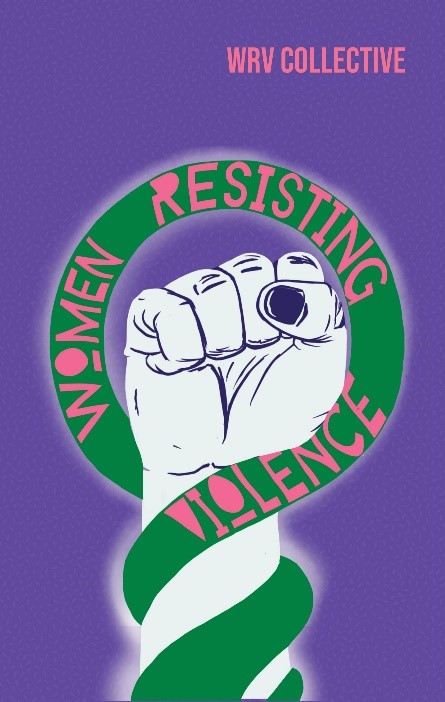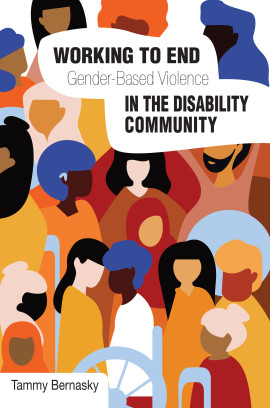Mark International Women’s Day 2024 with Practical Action Publishing
International Women’s Day is on 8th March and at Practical Action Publishing, this day is an opportunity to celebrate the social, economic, cultural and political achievements of women, and a welcome call to action for accelerating gender parity. Women are disproportionately impacted by energy poverty, extreme poverty, and adverse climate change impacts, yet are vital to resilience in their communities.
Find out more through our extensive gender books and journals collections and take advantage of 15% off all paperback books and ebooks in our gender collection until 15th March! Simply use code IWD24 at checkout.
Gender and Resilience in the City: Infrastructures, aspirations, and slow violence in Nepal
Hanna Ruszczyk
Gender and Resilience in the City is an exploration of one urbanizing city: Bharatpur Nepal, from 2014 to 2019. Bharatpur is representative of countless dynamic cities around the world. Local authorities and residents are learning what it means to be in a city in which the rural and urban are morphing into a new space of living. People’s historical practices are blending with opportunities for new futures, including those offered by international development projects.
Attending to gender (not only women) in policy efforts – and in academically overlooked, small urbanizing cities – is critical to our understanding of global urbanisms and development. The book explores two gendered groups that function on a neighbourhood level: mothers’ groups and neighbourhood groups. Mothers’ groups provide invisible community resilience in the form of social infrastructures. They experience slow violence by patriarchal power structures that will not allow them to be more than resilient. Meanwhile, by participating in neighbourhood groups, certain men (particularly high caste and affluent ones) are allowed to rework the urban and fulfil their aspirations for physical infrastructure in the form of paved roads in a new state-grey space controlled by the local authority.
This book presents the experiences of mothers’ groups, neighbourhood groups, governmental officials, and international development projects. It considers who has power, who is kept invisible to whom, and who can create the city in their imagery. New forms of ‘we’ness are being created. The insights in this accessible book will inspire researchers, students, practitioners, and policy makers working with urban community resilience.
Women Resisting Violence: Voices and Experiences from Latin America
Women Resisting Violence Collective
Women Resisting Violence is an illuminating and powerful account of the ways in which women and girls encounter violence and the bold initiatives they are developing to respond to it. Across Latin America, the number of femicides has grown at an alarming rate, exacerbated by the Covid-19 pandemic. Alongside has come a dramatic increase in domestic violence; loud demands over domestic workers’ rights; increased suffering from and fierce resistance to land-grabbing; increased urban violence; violent discrimination against migrants; and the relentless growth of state control over women’s reproductive rights. In Women Resisting Violence, case studies and interviews with women leaders from Latin America highlight the multiple and intersecting forms of gendered violence – where race, ethnicity, sexuality, and socio-economic status, and other markers combine to identify, discriminate against, and target women. Collecting a chain of voices, we focus on these women’s inspirational strategies for transforming their communities and influencing international laws.
Their testimonies underline the importance of culture, commemoration, and the arts in consolidating and amplifying active resistance. Women’s voices are loud and clear: gendered and intersectional violence is rampant in Latin America. But women are pushing back. As the Mexican proverb boldly states, ‘‘They wanted to bury us, but they didn’t know we were seeds.’
WRV Collective: Jelke Boesten is a professor of Gender and Development at the Department of International Development, King’s College London. Andrea Espinoza is a feminist researcher focused on women’s and Indigenous people’s rights in Latin America, particularly in Ecuador and the Andean region. Cathy McIlwaine is a professor of Geography at King’s College London. Louise Morris is a journalist and audio producer who’s made podcasts, radio, and audiobooks for BBC Radio 4, NPR, Audible, Pottermore and the BBC World Service. Patricia Muñoz Cabrera (PhD) is an international research consultant and trainer on gender and intersectionality in development policies. Moniza Rizzini Ansari is a postdoctoral research fellow at the Federal University of Rio de Janeiro, School of Law. Marilyn Thomson is an independent gender consultant working on issues such as the rights of migrant and refugee women, violence against women and girls, and the care economy. Rebecca Wilson is Managing Editor at Latin America Bureau.
Working to End Gender Based Violence in the Disability Community: International Perspectives
Tammy Bernasky
Violence and economic oppression affect women the world over, and women with disabilities face even greater risks than their counterparts. Women with disabilities experience violence and poverty in different ways and at higher rates than non-disabled women and all men.
This book explores gender-based violence and disability from the vantage point of resistance movements. Emphasis is placed on giving voice to the experiences of thirteen community organizers and self-advocates working to end gender-based violence. These stories, told from Australia, Bangladesh, Canada, Ghana, India, Kenya, United States, Nepal, and Yemen identify common challenges and transformative aspects of community organizing.
The challenges that emerged from these stories were negative perceptions of disability, a lack of representation in disability and feminist movements, inadequately addressing intersectional oppression, structural violence, and rights, justice and policy issues. These community organizers and advocates also identified important transformative elements which they describe as seeing their experiences reflected in the work, wanting a better situation for others, a raised awareness about gender-based violence against people with disabilities, having support from the community, and improved advocacy.
The book concludes with a discussion on the ways that movements to end violence can transform individual and collective consciousness about disability and gender oppression. Ultimately, in order for social movements to be ongoing and progressive, they require supporters and actors who individually and collectively recognize a common struggle, share a desire to ensure better for themselves and others, and exhibit a propensity to act.
Practical Action Publishing can offer free access to all their books and articles. Ask your institution to get in touch with them – we can set up affordable platform access that suits your students’ and colleagues’ bespoke needs. Find out more here or email to find out more.
Follow Practical Action Publishing on social media for new titles and special collections:





